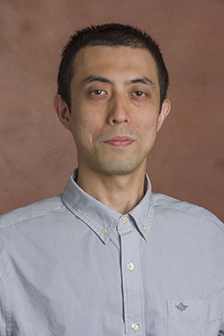
Hiroyuki Hirakawa, MD, PhD, received his MD degree from Tokyo Medical and Dental University in Japan. He then joined the laboratory of Dr. Shingo Sato at Tokyo Medical and Dental University where he studied bone metabolism and obtained his PhD in 2019. After completing his PhD, he went to Columbia University Irving Medical Center in the laboratory of Dr. Lei Ding, where he studied how hematopoietic stem cells (HSCs) and bone marrow regenerate after myeloablative stress. In September 2024, he was appointed as an assistant professor in the Center for Immunobiology and the Department of Investigative Medicine at WMed.
Research Focus
Bone marrow, which is the primary site for hematopoiesis in adult, contains many non-hematopoietic cell types. The special bone marrow microenvironment that is composed of non-hematopoietic cells represents a critical element for the maintenance of HSCs and progenitor cells. His laboratory uses mouse genetics to understand how bone marrow microenvironment regulates normal hematopoiesis and hematopoietic disorders.
Bone marrow mesenchymal stromal cells produce several factors to support hematopoiesis, and also serve as the skeletal stem cells that give rise to adipocytes and osteoblasts. A growing body of research showed that mesenchymal stromal cells are highly heterogeneous at the transcriptome level. His research is aimed at characterizing functional heterogeneity among mesenchymal stromal cells in vivo.
Endothelial cells are one of the major components of non-hematopoietic cells in the bone marrow. It has been shown that endothelial cells contribute to hematopoietic regeneration after myeloablative stress. His research aims to understand the mechanism of how endothelial cells regenerate and support hematopoiesis after stress, focusing on the hierarchy and heterogeneity of endothelial cells in the bone marrow.
Leukemia is one of the most common hematopoietic disorders. Any normal hematopoietic cells can be transformed to leukemic cells by acquiring mutations. Leukemic cells proliferate in the microenvironment where their normal counterpart gets a negative selective pressure. His research is aimed at understanding the interaction between leukemic cells and their microenvironment, which will gain insight into how leukemia cells remodel the compromised microenvironment to their survival advantage.
Recent Publications
Our laboratory group is committed to pursuing inquiry, disseminating knowledge, and fostering critical thinking that encourages lifelong learning. Take a look at a comprehensive listing of Dr. Hirakawa's most recent publications.

